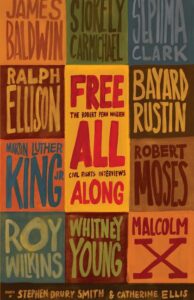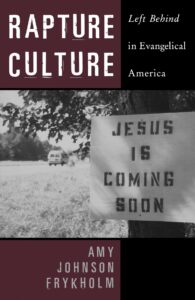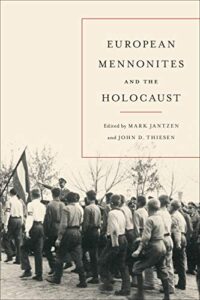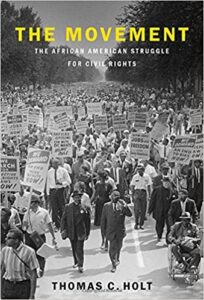 The Robert Penn Warren Civil Rights Interviews
The Robert Penn Warren Civil Rights Interviews
In 1965, Pulitzer Prize–winning author and poet Robert Penn Warren published Who Speaks for the Negro?, a personal narrative that blended his own experiences and reflections with quotes from interviews he had done with prominent Civil Rights leaders a year earlier. The full interviews, however, were never released, and the audiotapes stayed largely unknown until recent years. In Free All Along, editors Stephen Drury Smith and Catherine Ellis have compiled and transcribed the never before seen interviews into one book.
In 1964, in the height of the civil rights movement of the 1960s, Robert Penn Warren set out with a tape recorder to interview leaders of the black freedom struggle. He spoke at length with luminaries such as James Baldwin, Martin Luther King Jr., Stokely Carmichael, Ralph Ellison, and Roy Wilkins. In Harlem, a fifteen-minute appointment with Malcolm X unwound into several hours of vivid conversation. The interviews were long and detailed, eliciting reflections and frank assessments of race in America and the possibilities for meaningful change. A major contribution to our understanding of the struggle for justice and equality, these remarkable long-form interviews are presented here as original documents that have pressing relevance today.
Reviews and endorsements of the publication include:
“The conversations feel immediate and are thoroughly engaging, and it seems as though this was organically the case; when Warren interviewed Malcolm X, he was in such high demand that he committed to only 15 minutes for the interview, but ended up staying for over an hour. Free All Along is the book Warren should have published: It’s a product of careful listening to people more than qualified to speak for themselves.”―The Progressive Populist
“There are times when voices from the past speak directly to our present. Free All Along is a rare and electrifying document, one that reveals the enduring connections between the long struggle for civil rights in the last century to the fight for justice in our own.” ―Michael Eric Dyson, New York Times bestselling author of What Truth Sounds Like
“An anthology that arguably holds more contemporary importance as an historical document than the original release.”―Kirkus Reviews
For more information on the publication, click here.
Fellow travelers are scholars, activists, and practitioners that embody the ideals and commitments of the Project on Lived Theology. We admire their work and are grateful to be walking alongside them in the development and dissemination of Lived Theology.



